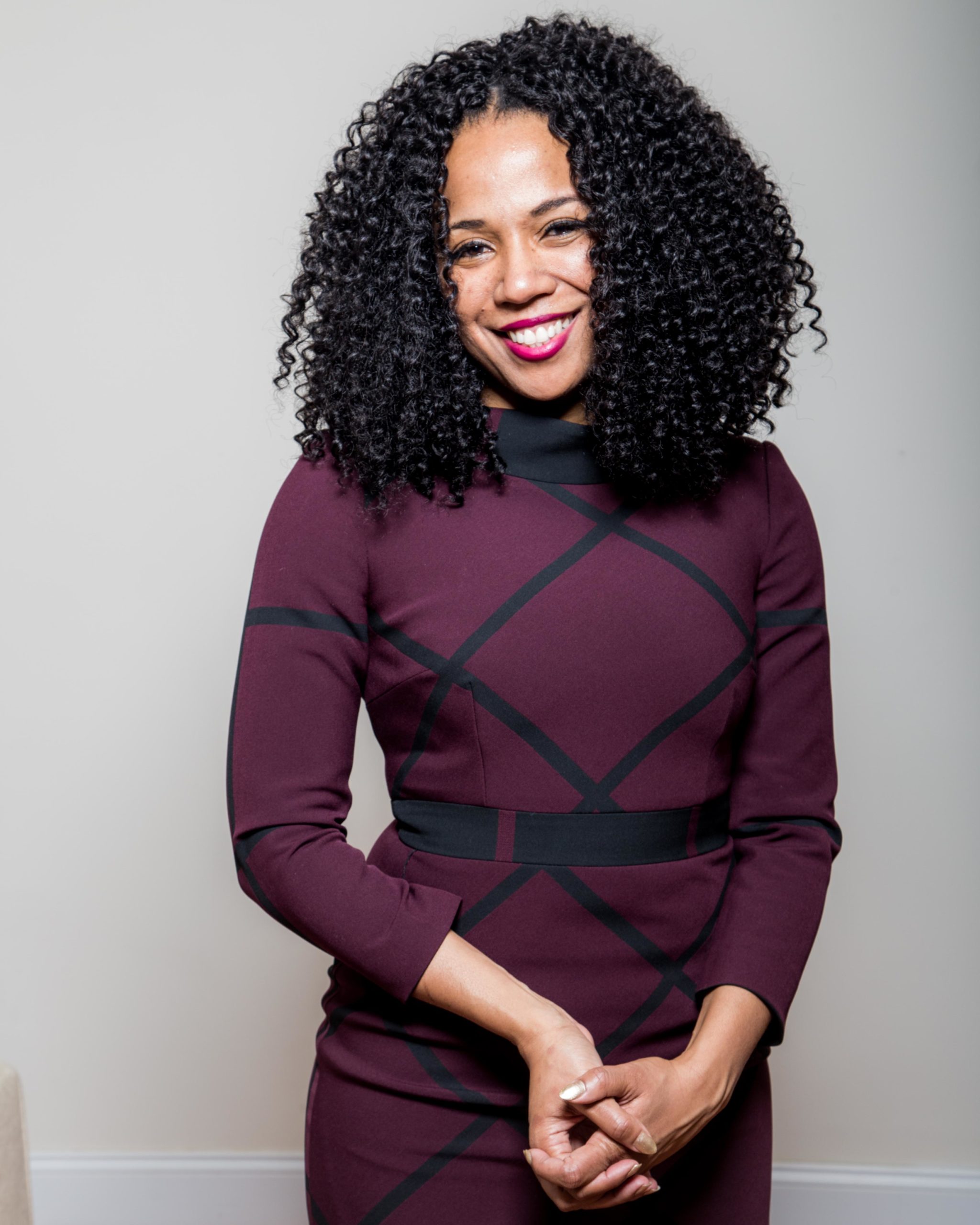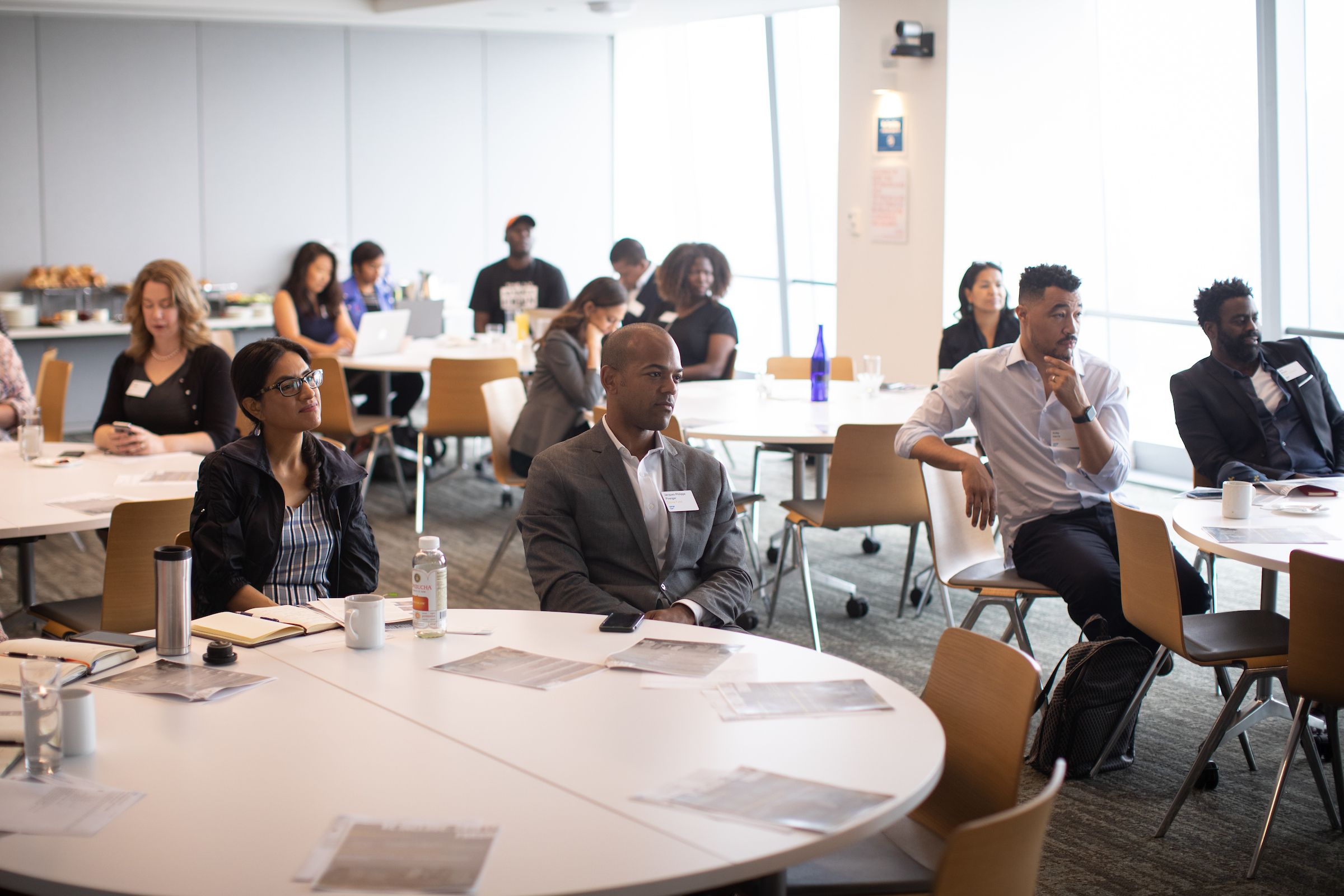

Bahiyah Yasmeen Robinson, CEO of VC Include, is building the infrastructure for diversity in venture capital funding from the ground up.
After seeing firsthand the difficulty of raising capital as an underrepresented founder, Bahiyah is on a journey to disrupt the industry. VC Include is a platform that supports diverse fund managers and limited partnerships in venture capital, private equity, and socially responsible investing. Through passion, data and, above all, dedication, her company is challenging long-held beliefs and transforming the industry to embrace inclusivity.
We asked Bahiyah about the lessons she’s learned in leading the cause, how she’s overcome the challenges against her, and what advice she has for others.
Q: Tell us the story behind your company’s founding: What led you to start this business?
A: Since 2010, I have been working in the impact and non-profit space to engage and support Black, Indigeneous and People of Color (BIPOC) founders in the U.S. and Africa. However, I wasn’t seeing the capital moving at scale. After advising a few successful founders and helping them secure capital for their startups, I realized that there was a real problem at the top. I started asking different questions of venture capitalists (VCs) and impact fund managers, because I kept seeing highly qualified investors struggling to raise capital to invest in the underrepresented startups I was working with. By 2018, I knew that there was a real issue. The supply chain of capital was broken. No amount of “ecosystem building” at the founder level was going to be helpful until we bridged the gap of capital flowing from LPs (foundations, endowments, public pensions, high net worth individuals) to fund managers.


Q: What problem does VC Include solve, and what are some of the most meaningful impacts it has had to date?
A: VC Include was created in 2018 to address the lack of infrastructure that’s needed for diverse fund managers, particularly Black and Latine managers in VC, Impact/ESG and Private Equity. We’ve built the first phase of what we call economic justice infrastructure, as a business. The fund managers we support are what are called “emerging managers,” but even that term means different things to different asset allocators (also called LPs, or the guys with the real money that invest in these funds) — they can be a $1 billion fund, or a $200 million fund, depending on the type of fund it is.
Because asset allocators are 98.4% white men managing $69 trillion of the private capital in the U.S., there are a lot of reasons why it’s hard to convince them to invest in underrepresented fund managers. They don’t understand their value, and some don’t actually care about these communities or would rather keep the status quo of racial and economic inequity because it continues to make them richer. What some asset allocators are starting to realize is that this zero sum game is not only harmful to American growth and prosperity, it’s also a really unwise long term game. There is tons of data that has recently been published highlighting that investments into diverse asset managers deliver higher yield (or returns) on their investment.
Q: What was your biggest challenge during the fundraising process, and how did you mitigate it?
A: How does a Black woman convince white investors to invest in Black and Latine fund managers? I had to chuckle because I literally have taken on the hardest challenge possible…when it comes to money, people are in their feelings about it. This is why a white man will give $2-5M to another white man for an idea. Why? Because there’s comfort, they see themselves in the founder, they believe in their ability to raise more capital.
All of these things technically work against me. The thing I have that no one can take away from me isn’t capital…it’s heart. I have used the degree I received in International Relations from U.C. Davis, that I thought I was going to use to become a diplomat, to change the hearts and minds of asset allocators. I’ve done it through relationship building, telling my story, sharing my passion, and showing the data that makes it clear they’re missing an opportunity to make money and change the face of this industry in a more inclusive way.
Q: How important have you found branding to be for the success of your company? What are the most important branding lessons you’ve learned along the way?
A: Branding in the asset management industry is a bit tricky, especially for a Black woman. Because this is one of the many white male owned industries, the double challenge of being a woman (also included in the 1.6% of diverse managers figure), AND Black is basically unheard of. There are a couple of pioneers in this space. I’ve met two, and they don’t focus on venture or impact investors. So I’ve started with the brand being led by the fund managers we support, which can be tricky because if a manager doesn’t feel like they’re getting enough attention, you risk affecting the brand’s reputation.
I’m in a unique and lucky position that the managers that we work with know my dedication to the space. They know that my ultimate goal in supporting them is to accelerate investment into underrepresented founders, so they’re a little more forgiving, and a lot more generous in their support of me as a servant leader, and VC Include as a Benefit Corporation trying to increase diversity in asset management as a Black woman CEO. “We’re the little engine that will.”
Q: What’s been the #1 lesson you’ve learned about hiring since you started your company?
A: When you have a niche company, hire people that really understand the industry and have a deep desire to change it. I’ve made the mistake of hiring people that may be good at a particular sector, but don’t understand entrepreneurship or asset management holistically. In some industries, having someone learn on the job is fine, but when you’re dealing with systems change, it’s important to have a team that understands the system you’re looking to disrupt.


Q: What advice would you give someone starting out on the journey you’re on?
A: Do twice the research you think you need to do to understand the problem you’re trying to solve before you start the business. As an entrepreneur, I’m a big fan of pilots and MVPs — it’s where you start to understand how your customers behave, and what they will pay for. Expect it to take twice as long for your company to succeed. The 3-5 year period for revenue growth is real. Also, it’s not just about revenue — of course you need to make money for your business to thrive, but you also want to work with people you trust and that are good at what they do. It takes time, and moving through a few fires, to determine whether your team members will go the long haul or if they’re a shorter term hire. Lastly, you’re the captain of the ship, so you have to trust yourself. There are so many unexpected things that happen on the entrepreneurial journey, you need to have a strong internal compass to weather the storms and get to your destination.
Dreamers & Doers is a private collective which amplifies the entrepreneurial pursuits of extraordinary womxn through high-impact resources, community and mutual support. It is supported by a global ecosystem of 30,000 womxn. Learn more about Dreamers & Doers and sign up for their monthly carefully curated list of top career and entrepreneurial resources.
You can find more stories from incredible female leaders in the Crunchbase “Female Founder Series,” a series of stories, Q&As, and thought-leadership pieces from female founders who overcame the odds, raised funding, and are now leading successful companies.





